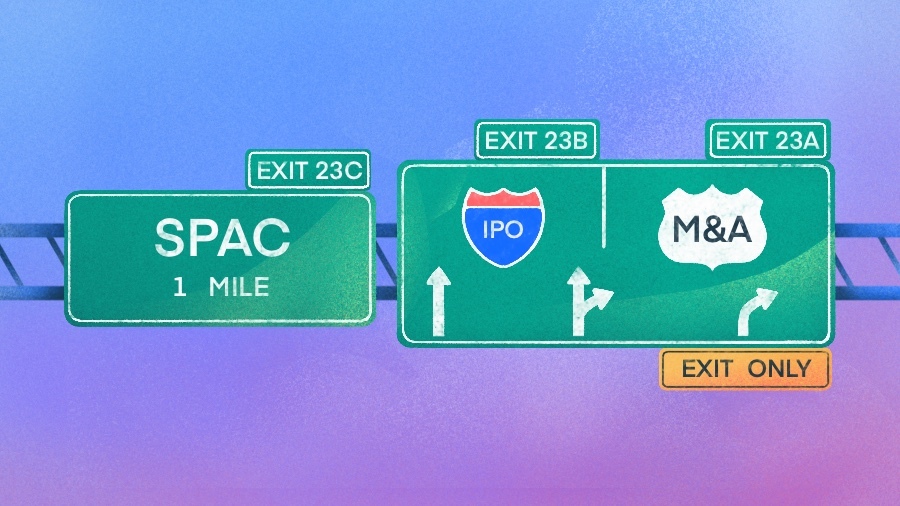Why Startups May Soon Be Buying More Startups
Why Startups May Soon Be Buying More Startups Joanna Glasner
If you’re a startup, it’s likely your exit won’t be going public or selling to a big-name acquirer. Instead, there’s a good chance you or your assets will end up in the hands of another startup.
Stats back up this presumption. Each year, in the U.S. alone, hundreds of funded startups get acquired by private, venture-backed companies.
This year is shaping up as no exception. So far in 2023, at least 99 U.S. startups have been acquired by other startups, per Crunchbase data.
Search less. Close more.
Grow your revenue with all-in-one prospecting solutions powered by the leader in private-company data.
As the chart below illustrates, reported counts for these kinds of deals are actually down a bit from last year’s highs. But there’s reason to think that may be temporary.
The case for more M&A
“I think it’s likely the market at large will see an increase in M&A activity,” said Whit Bouck, a partner at Insight Partners who works with portfolio companies pursuing strategic acquisitions. One factor she points to is the changing funding environment.
It’s been much harder to secure venture investment in recent months than it was in 2021 and early 2022. And as time goes on, it’s more likely companies that landed financing a couple years ago will be running out of cash.
If startups can’t get new investment at acceptable terms, selling to an acquirer may become a more common alternative. For acquirers, meanwhile, the prospect of bringing in valuable talent and assets for a competitive price could look increasingly attractive.
Cost considerations
Currently, it’s tough to parse what kinds of deals acquirers are negotiating.
The overwhelming majority of startups that make acquisitions do not report what they paid. Disclosed prices are particularly rare for smaller purchases of seed-stage startups and so-called talent acquisitions.
There are exceptions, however, especially when a well-funded startup buys another company that previously raised venture capital. So far this year, we’ve seen two deals with reported values around $100 million: Online publishing software provider OpenWeb’s January purchase of personalized messaging startup Jeeng, and digital health platform Transcarent’s acquisition of the virtual care business 98point6 in March.
Given that public and private tech company valuations have fallen sharply in recent quarters, typical deal prices are probably already down considerably from early last year. For still-viable startups acquired by other startups, however, the good news is that an acquisition isn’t game over, as the combined company still has a shot at an even bigger exit to come.
Related Crunchbase Pro queries:
Related reading:
Illustration: Dom Guzman

